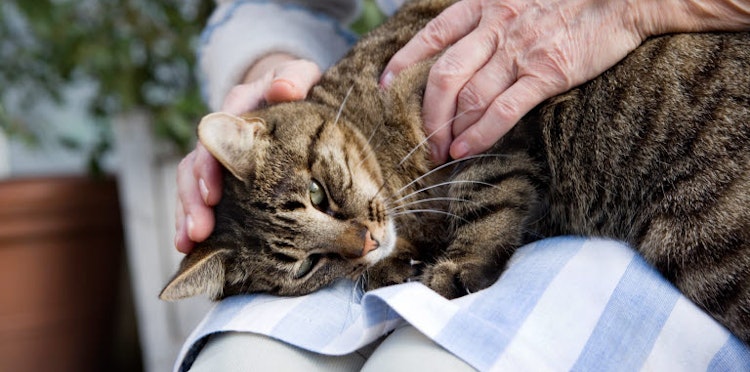Tumours in cats

Nodules should always be examined by the veterinarian. The earlier they are detected and treated, the more the chances of recovery increase.
Tumours, which mean lumps, can be either benign or malignant and they can occur in any organ of the body.
Common tumours in cats
- Tumour in the oral cavity
- Uterine tumour
- Skin tumour
Tumours in the mouth or oral cavity
Sometimes you can clearly see a tumour (nodule) in the oral cavity, but they can be smaller and difficult to detect. As they can often be malignant, it is important to detect them as early as possible.
Examine your cat's mouth regularly. Other signs that your cat has a tumour in the oral cavity can be increased salivation, difficulty eating, and decreased appetite which can lead to weight loss and bad breath. Tumours can occur in different places throughout the mouth.
How to detect mammary tumour in cats
Uterine, or mammary, tumours are one of the most common forms of cancer in our cats. Because mammary tumours in cats are often malignant, it is important to find them early, no matter how small they may be.
Make it a habit to feel the cat's mammary glands once a week. The females usually have four udder parts with each teat and they sit along the underside of the chest and abdomen.
Skin tumours can vary in appearance
Skin tumours can be hairless or sore, but they can also look like harmless warts. Some grow slowly, some quickly and some spread throughout the body (metastasize).
It is impossible to tell just on appearances or growth whether a skin tumour is benign or malignant.
Surgery is the most common treatment
Tumours are usually treated with surgery. Radiation therapy can be used on tumours to shrink them. Chemotherapy and chemotherapy are other treatments that are used and can also be combined with surgery. Some tumours are also more difficult to treat than others and have a worse prognosis. When choosing treatment, consideration is given to the individual animal such as age, type of tumour and prognosis and possibly other diseases.
Check your cat regularly
If you notice anything abnormal in the skin, make an appointment with a veterinarian. Do not wait for the nodule to grow. It's better to be safe than sorry and get it checked out before it starts to grow.
Examine your cat for the following
- Are there any changes in the female's udder lines?
- Do you feel a lump in your cat's skin?
- Do you suddenly feel a lump somewhere on your cat's body that you haven't felt before?
- Does your cat's mouth look normal?


